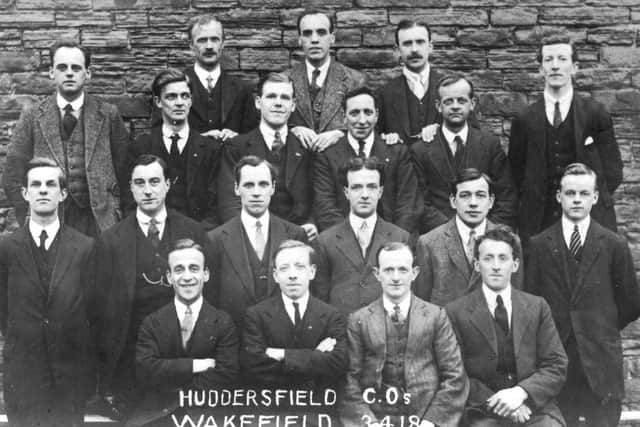Leeds nostalgia: '˜After hours' drinks banned by court...
The article, appearing on page three of the Yorkshire Evening Post 100 years ago today, outlined a practise which hotel owners both in Leeds and Manchester said was common throughout the industry, whereby guests would pay for drinks in advance, being given receipts in return, which they would later exchange for drinks in their rooms. No money therefore passed hands.
However, a magistrate in Manchester, ruled that the Liquor Control Order had been breached on two counts: firstly, that the drinks had in fact been sold and secondly that they “consumption” had taken place.
Advertisement
Hide AdAdvertisement
Hide AdMeanwhile, from Wakefield, there was news that some 600 conscientious objectors to the war had been removed from Wakefield Gaol. When they first arrived at the prison, all the locks were removed from the cells and prison guards were sent to other prisons and for a time the establishment was known as the Wakefield Works Centre.


They were apparently allowed plenty of liberty and, muses the article: “no doubt they would have been in Wakefield yet” had not the citizens of that city taken a disliking to them as they roamed the streets.
The matter was taken up with the Home Office following several “disturbances” in the city centre. The upshot was the objectors were moved on and the prison reverted to its previous role. Still, it was added that it would thenceforth be used to house so-called “absolutists”, those people contentious objectors who had been imprisoned for various offences.
In an unrelated story, a Batley millworker, who was also down as a conscientious objector, was brought before court to explain why he had not taken up a demand that he work 30-hours of “national importance” work a week.
Advertisement
Hide AdAdvertisement
Hide AdThe 39-year-old said if he left his current job, the owner of the factory would go bust. Chairman Mr J W Turner said the applicant had set himself up against the tribunal and that he would be given a month to find work of national importance, adding: “The fact a man might be losing money had nothing at all to do with the matter.”